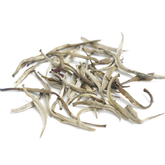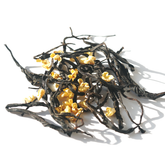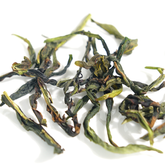Does Green Tea Make You Poop? Discover The Best Tea for Digestive Health
In modern lifestyles, dietary habits increasingly lean toward high-protein, high-fat meat and refined carbohydrates. While such a diet offers more calories and taste, it poses significant health risks. Overconsumption of high-fat and high-protein foods can burden the digestive system. Meanwhile, a lack of dietary fiber and micronutrients slows intestinal motility, leading to constipation and gut microbiota imbalance. Additionally, the prevalence of heavily processed foods like white rice and refined bread further reduces fiber intake. Foods rich in dietary fiber, such as whole grains, vegetables, fruits, and legumes, play a crucial role in maintaining regular bowel movements. Unfortunately, these foods are becoming less prominent in modern diets. So, what tea can improve gut health and promote better digestion?
Does Green Tea Make You Poop?
Based on years of tea chemistry research, I’ve found that green tea is not the best choice for improving bowel movements. If you frequently experience digestive issues like constipation or gut imbalance, I highly recommend trying Chinese dark tea, particularly ripe Pu'er tea from Yunnan Province. Dark tea has long been recognized in China for its beneficial effects on gut health.Historically, in regions like Xinjiang and Inner Mongolia, where diets were predominantly meat- and dairy-based due to nomadic lifestyles, vegetables were scarce. Over time, dark tea was discovered to aid digestion, alleviate the heaviness caused by fatty meats, and replenish essential vitamins and minerals. For centuries, dark tea has been indispensable in these areas, alongside milk and meat, earning its title as the 'Tea of Life'.
Why Is Dark Tea Effective for Digestion and Weight Loss?
The Role of Tea Polysaccharides
Tea polysaccharides in dark tea are key to its digestive benefits. Research indicates that these compounds regulate gut microbiota balance and promote intestinal motility, improving overall gut function. For instance, a study published in Tea Science revealed that tea polysaccharides significantly mitigate gut flora disruption caused by high-fat diets, boosting beneficial bacteria like bifidobacteria and lactobacilli to alleviate constipation.In Korea, dark tea is considered to be the best tea for constipation, especially the aged ripe Pu-erh tea. In the south of China, the older middle-aged and elderly people who have bad stomach or constipation problems basically drink Puerh ripe tea for everyone, instead of choosing green tea, which is very irritating to the stomach.
Regulating Gut Microbiota
The fermentation process of dark tea produces secondary metabolites, such as theaflavins, which increase the abundance of beneficial bacteria (e.g., lactic acid bacteria) while reducing harmful ones. This creates an optimized gut environment. Research published in Food Science supports that Pu'er tea, a type of dark tea, significantly improves gut microbiota diversity disrupted by high-fat diets in mice.
The Contribution of Theabrownins
Theabrownins in dark tea have antioxidant and anti-inflammatory properties, protecting intestinal mucosa and strengthening the gut barrier. They also lower inflammation by modulating gut microbiota, enhancing overall gut health. According to a study in China Journal of Food Science, theabrownins effectively alleviate gut inflammation and improve digestive functions.
Caffeine and Polyphenols in Harmony
The moderate caffeine content in dark tea gently stimulates gastrointestinal motility, while polyphenols promote lipid metabolism and bile secretion, supporting digestive health. Research in Modern Food Science and Technology highlights the synergistic effects of caffeine and polyphenols in accelerating the movement of intestinal contents while maintaining a gentle impact on the gut.
Conclusion
If you face issues like constipation or waste buildup, green tea may not be the ideal solution. Surveys of millions of tea enthusiasts in China reveal that aged ripe Pu'er tea is the most effective choice for enhancing intestinal motility and promoting bowel movements.In Japan as well as in the Korean region,ripe Pu-erh tea from China is regarded as the best, body-friendly tea for weight loss. As well as the best tea for bloating.Many report noticeable effects, such as a "rumbling" sensation in the stomach after drinking Pu'er ripe tea, a sign of increased digestion activity.As a post-fermented tea, Pu'er ripe tea is gentle on the stomach and minimally irritating. In contrast, green tea, being non-fermented, can irritate the stomach, especially when consumed on an empty stomach, potentially harming digestive health. For a stomach-friendly and effective digestive aid,ripe Pu'er tea is a superior option.
SEE MORE ABOUT TEAS
If you have questions about selecting tea:
Learn-more-about-chinese-tea
If you have questions about the benefits of tea:
Health-benefits-of-chinese-tea
If you have questions about brewing tea:
How-to-brew-loose-leaf-tea






